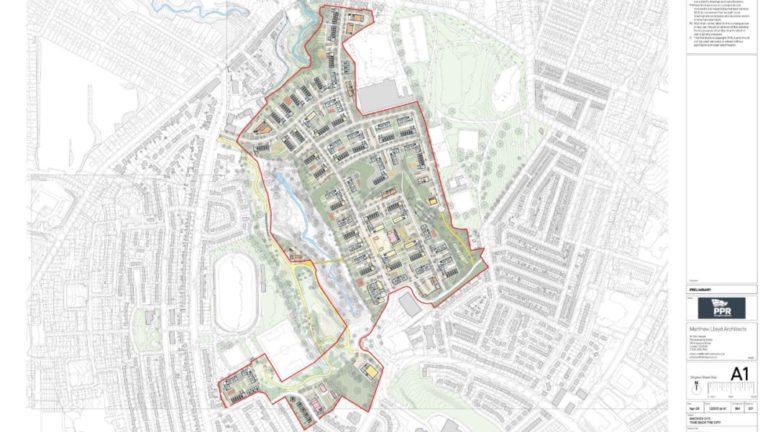The European Food Safety Authority has approved the decontamination process used by Greiner Packaging UK & Ireland, at its factory in Dungannon, Northern Ireland, to recycle post‐consumer PET into food contact materials.
“This is a significant and hugely important step in our journey to use increasing amounts of recycled material in our food-grade packaging,” says UK Sales Director Julie Eller. “The EFSA panel has concluded that the recycling process we use is safe for the manufacturing of food-grade packaging.
“We have invested over £3,700,000 in our new PET decontamination and extrusion line to enable the use of more recycled materials in our market-leading packaging ranges. This is the latest step in our continued commitment to innovate, increase capacity and reduce our carbon footprint.
“Since Greiner Packaging first introduced its K3® cardboard-plastic innovation in 2007, there has been continuous investment at our UK manufacturing facility. But, alongside investing to create new packaging solutions, there has been a constant focus on investing in improving our environmental sustainability performance and pursuing our goal to achieve a circular economy.”
EFSA approval
Recycled plastic materials and articles can only be placed on the market if the recycled plastic is from an authorised recycling process, and the European Food Safety Authority (EFSA)’s opinion on its safety is required.
The EFSA Panel on Food Contact Materials, Enzymes and Processing Aids (CEP) assessed the safety of Greiner Packaging’s recycling process, using the Starlinger deCON technology, and concluded: “The recycled PET obtained from this process is not considered to be of safety concern, when used at up to 100% for the manufacture of materials and articles for contact with all types of foodstuffs for long‐term storage at room temperature, with or without hotfill.”
The input material for the recycling process consists of hot-washed and dried flakes obtained from PET containers, such as bottles, previously used for food packaging, from post-consumer collection systems (kerbside, deposit systems and mixed-waste collection). Currently, up to 5% may originate from non-food applications.
Recycled flake is cleaned and washed, however still requires further decontamination. The world-class decontamination unit installed at Greiner Packaging’s factory in Dungannon enables the removal of impurities and hence, creates a food-safe material. This is integrated with a greater material feed system which is directly linked to a new extrusion line. This equipment and process arrangement gives complete flexibility with the capacity to utilise recycled input materials, virgin or a combination of both, giving total flexibility to meet customer requirements.
Beyond rPET – investing to us different types of recycled materials
“This EFSA approved recycling method allows Greiner Packaging to integrate the supply chain, and we are well on our way to being able to include at least 30% recycled content in all products,” says Sustainability and Innovation Manager Rachel Sheldon. “Rather than buying-in PET sheet and selling off any waste, we can now create recycled PET (r-PET) sheet on-site, and re-use excess material.
“Until last year, we only extruded polypropylene (PP) in Dungannon, but now we can extrude r-PET, and recycled polypropylene (r-PP).
“Currently, most of the recycled PET supply available in the UK originates from plastic bottles, a very clean source. The new intergrated line enables ‘tray-to-tray’ recycling – meaning that we can process material from a wider variety of sources and utilise a lighter grade of recyclate. This novel process and equipment arrangement provides greater capability to control and enhance material characteristics to better meet our customer’s product specifications.
“While r-PET has become commonplace for chilled products such as salads, PP has remained the main material for dairy products and our aim is to offer increasing r-PP content, even though food-grade PP recyclate is currently in short supply in the UK. Despite this, pilot quantities of r-PP for product trials are already available.”
“While a lot of talk in the industry has recently only been about r-PET, we are already in a position to favour either r-PET or r-PP, and can produce the majority of our products using either material. Across Europe, we are already making products with r-PP, and this is set to increase.”
K3®r100 and the self-separating solution
Using the new EFSA-approved in-house r-PET capability, a wide range of 100% r-PET K3® products are now available. Designed for recycling, Greiner Packaging’s K3® solution is one of the most sustainable packaging solutions on the market.
The adaptable, popular and successful K3® cardboard-plastic combination, reduces plastic consumption, while creating eye-catching packaging designed to maximise marketing opportunities. Thanks to its reduced plastic content, the K3® packaging solution has an improved CO2 footprint and it can be recycled efficiently, as the cardboard and plastic can be easily separated.
The cardboard wrap, which can be made from recycled material, lends sturdiness to the plastic cup so that it can be produced with particularly thin walls. This wrap is especially easy to detach from the cup and now features a new tear tab which makes separation intuitive and much easier for consumers to separate the cardboard sleeve from the lightweight plastic cup, to enable efficient recycling.
Greiner Packaging has now successfully trialled a solution in which the cardboard wrap separates itself from the plastic cup during the waste collection process. K3®r100 enables cardboard and plastic to be separated before they reach the near-infrared detection (NIR) system at the recycling facility, leading to proper detection, sorting and recycling. RecyClass has rated K3®r100 with Class A.
The best-case scenario is still for consumers to separate the cardboard wrap from the plastic cup before disposing of the parts properly, so the new K3®r100 solution still features the innovative tear-tab.
Taking a collective industry position
“As a business, Greiner Packaging takes a collective industry position and wherever possible, leads through example. We recently joined RECOUP, the official RecyClass auditor for rigid plastic packaging in the UK, and we were one of the founding members of the UK Plastics Pact,” says Rachel Sheldon.
“Gaining EFSA approval for our recycling process represents another significant step in our journey to helping our customers to add value, while also delivering on our circular economy commitments.”
Greiner Packaging adds its first recycling company
In September, Greiner Packaging broadened its portfolio of businesses by adding its first recycling company to the group. The acquisition of Serbian PET flake producer ALWAG, which will be renamed Greiner Recycling d.o.o., sees Greiner expand its business model by additionally entering the business of reprocessing recyclable materials.
“PET is currently the only mechanically recycled material that can be used for food applications. We are strong believers in the potential of PET and, by expanding our expertise, we are actively committed to using this material effectively,” says Greiner Packaging CEO Manfred Stanek. “As we work toward our sustainability goals, which we pursue consistently through all the business decisions we make, we naturally pay special attention to the possible creation of other r-PET streams in addition to the bottle-to-bottle stream. That would mean that an old PET cup could become a new PET cup in the future.”






